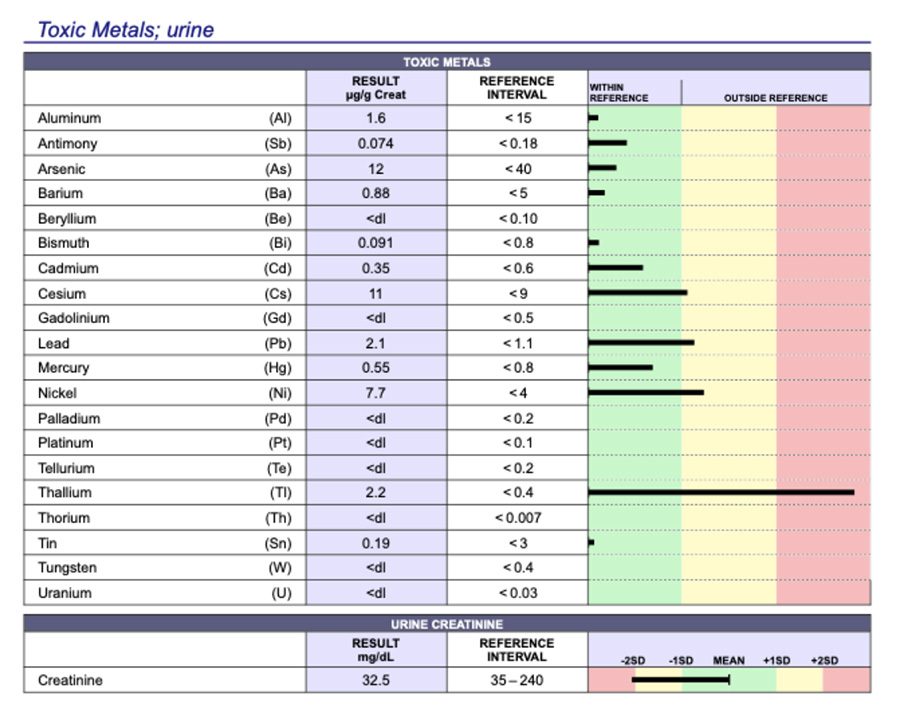A heavy metal blood test or urine test is a panel of tests that help measure the amount of heavy metal toxicity in your blood, urine or other body tissue or fluid. While “heavy metals” is a broad term, some of the most common metals that are tested for include lead, mercury, arsenic, cadmium, copper, zinc, aluminium and thallium. Sometimes, these tests are also known as heavy metal toxicity tests.
So how do heavy metals get into your system? You can breathe them in, eat them or absorb them through your skin. Some small quantities of essential element metals are needed to survive and regulate bodily functions – like chromium, iron and zinc. These metals can be incorporated in safe levels with supplements. However, overexposure to metals can be toxic to humans and can cause heavy metal poisoning. This heavy metal concentration in your body can cause harmful health effects like organ damage and dysfunction, neurological and muscular degeneration and allergies.
Getting a heavy metal test is useful to determine the levels of heavy metals in your system. A heavy metal test measures the type of heavy metals in your system and how much of that toxic metal may be present.
Taking a heavy metal toxicity test can also be useful in guiding the management and treatment of any heavy metal poisoning. Retaking a test after treatment can confirm that the treatment methods are working. A known recent exposure to heavy metals may also be a reason for getting a heavy metal test.

